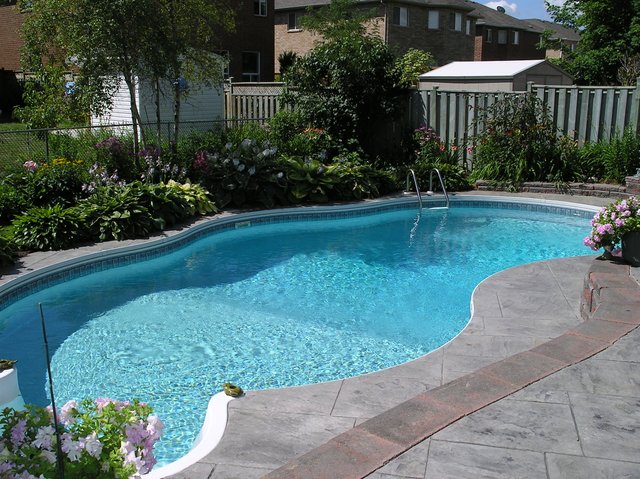
n the realm of luxurious and visually captivating swimming pools, gunite pools emerge as true masterpieces of artistry and craftsmanship. These pools, known for their durability, customizability, and elegant finish, bring a touch of sophistication to any outdoor space. However, beyond their aesthetic allure, owning a gunite pool requires meticulous upkeep, including the delicate task of maintaining the right balance of water chemistry. In this article, we delve into the artistic charm of gunite swimming pools and explore the vital process of balancing hardness levels to preserve their splendor and we also going to know about how to balance hardness level in gunite pool .
Crafting Elegance with Gunite Pools
Gunite pools stand as a testament to architectural ingenuity, sculpted by combining a mixture of cement, sand, and water, which is then pneumatically applied to a sturdy framework. This unique construction technique allows for boundless design possibilities, transforming pools into expressions of individuality and style, from classic and opulent to contemporary and sleek.
The smooth and refined finish of gunite pools not only grants them an inviting tactile quality but also enhances their visual appeal. The adaptability of gunite construction extends to incorporating various features such as integrated spas, cascading waterfalls, and intricate mosaic patterns, seamlessly merging aesthetics with functionality. It is this seamless blending of creativity and engineering that makes gunite pools a popular choice for homeowners seeking to elevate their outdoor spaces.
The Balancing Act: Hardness Levels in Gunite Pools
Owning a gunite pool is not just about relishing in its beauty but also about nurturing its longevity through attentive maintenance, with a focus on water chemistry, particularly hardness levels. Water hardness refers to the concentration of minerals, mainly calcium and magnesium, present in the water. Imbalances in these minerals can lead to a slew of issues, including the formation of unsightly scale, cloudy water, and potential harm to the pool's structure.
Here's a comprehensive guide on how to balance hardness levels in your gunite pool:
Regular Testing: Employ a reliable pool water testing kit to monitor the calcium hardness levels consistently. Performing these tests weekly can help catch any deviations early on.
Addressing Calcium Hardness: Low calcium hardness levels can cause aggressive water, leading to potential corrosion. Conversely, excessive levels can trigger scale formation. To raise hardness, consider adding calcium chloride. For lowering hardness, dilution with fresh water might be necessary.
pH Precision: Maintaining the correct pH level is critical for thwarting calcium scale buildup. Aim for a pH range of 7.4 to 7.6, which is ideal for preserving the beauty of your gunite pool's surface.
Seek Professional Guidance: If the task of balancing hardness levels seems daunting, consulting a pool maintenance expert is a wise move. Their expertise can offer tailored solutions based on your pool's specifications and local water characteristics.
Consistent Care: Alongside hardness levels, adhering to a regular pool maintenance regimen encompassing filtration, sanitization, and cleaning is paramount for upholding the elegance of your gunite pool.
Final Strokes
Gunite swimming pools are genuine works of art, elevating outdoor spaces with their timeless charm and customizable designs. To perpetuate the artistry of your gunite pool, diligent care and a deep understanding of water chemistry are non-negotiable. Balancing hardness levels takes center stage in this maintenance chore, safeguarding the exquisite finish and structural integrity of your pool. By following the guidelines outlined above and embracing proactive pool care, you ensure that the artistry of your gunite swimming pool remains a source of pride and delight for years to come.